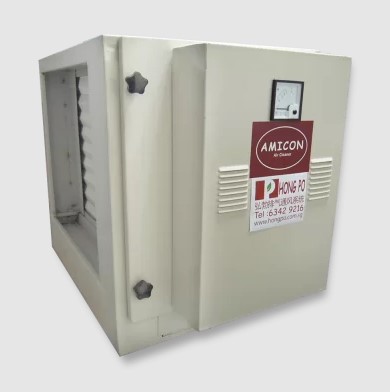
6 Tips For Cleaning Your Kitchen Exhaust Systems To Keep Your Home Healthy
Keeping your home healthy is important. One way to do this is by installing a kitchen exhaust system. This article from Hong Po will provide you with 6 tips for cleaning your kitchen exhaust systems and keeping your home healthy.
1: What Is A Kitchen Exhaust System?
A kitchen exhaust system is a device that helps to remove cooking fumes and other smells from the kitchen. By venting these smells out of the house, the exhaust system can help to improve the overall quality of your cooking experience.
Most kitchen exhaust systems come in two forms: direct-vent and forced-air. Direct-vent systems use a valve on the roof or side of your stove to allow air into the system, while forced-air systems use an electric fan to force air through the system. Whichever type you choose, make sure to get a system that is properly sized for your home and cooking needs.
2: How To Install A Kitchen Exhaust System?
When it comes to installing an exhaust system in your kitchen, there are a few things you need to keep in mind. First, make sure that the area you’re installing the exhaust system in is well-ventilated. This means that there should be openings in the ceiling and walls for proper airflow. Next, make sure that the length of the exhaust system is appropriate for your kitchen. Too long an exhaust system will only congest and heat up your kitchen air, while a short system may not be effective at removing cooking smells or heat. Finally, consider using a screened ventilation hood if possible to further improve air quality in your kitchen. A hood can trap cooking smells and heat before they reach other parts of your house, making it easier to enjoy clean air without having to leave your kitchen.
3: The Benefits Of Having A Kitchen Exhaust System
Kitchen exhaust systems are a great way to improve your home’s air quality and improve your kitchen’s overall cooling and ventilation capabilities. By removing the cooking and baking smells and fumes from your kitchen, an exhaust system can help to improve your overall health and well-being. Additionally, a properly installed kitchen exhaust system can also reduce the noise level in your home, making it easier for you to get some rest.
4: Tips For Cleaning Your Kitchen Exhaust Systems
If your kitchen exhaust system is not functioning properly, you may be experiencing a build-up of grease, dust, and other particles. This can cause inflammation and irritation in the nose and throat, as well as asthma symptoms. Follow these tips to clean your kitchen exhaust system:
1) Remove all obstructions from the system: Fans, appliances, cabinets.
2) Use a shop vacuum cleaner to remove debris from the system. Be sure to use the hose attachment for tight spaces.
3) Use a high-pressure hose attachment to clean larger areas. Be sure to wear protective gear such as goggles and gloves.
4) Wash the filters regularly with warm water and detergent.
5: Common Problems With Kitchen Exhaust Systems
One of the most common problems with kitchen exhaust systems is that they can become clogged with dust, hair, and other debris. This can cause the system to fail prematurely, leading to Poor air quality in the kitchen. In addition, a clogged system can also cause heat buildup and even fires. It is important to keep your kitchen exhaust system clean and free of obstructions in order to ensure optimal performance.
6: How To Avoid Problems With Kitchen Exhaust Systems
Kitchen exhaust systems are an important part of any home’s ventilation system. They help to remove cooking odors and fumes from the kitchen, and can also help to improve air quality in the entire home. However, improper installation or maintenance of a kitchen exhaust system can lead to problems. Here are some tips to avoid problems with your kitchen exhaust system:
- Verify that your kitchen exhaust system is properly installed. Make sure that the tubes are connected to the right parts of the house, and that the pipes are properly sealed. If you notice any signs of damage or wear on your pipes or systems, call a professional installer to update your installation.
- Regularly check your system for signs of wear and tear. Check for cracks in tubing, leaks around connections, and so on. If you notice any issues, call a professional installer immediately to fix them before they become serious problems.
- Disconnect your kitchen exhaust fan when you’re not using it! This will help reduce the amount of heat buildup in the kitchen when the fan isn’t running (it will also save electricity). When you do need to use your fan, turn it off as soon as you leave the room so that the fan doesn’t continue to run while you’re not there.
- Keep your kitchen exhaust system clean. Dirty systems can cause poor air quality and increased emissions. Clean your system regularly using a mild soap and water solution, or an appropriate commercial cleaner.
- Check your kitchen exhaust fan for proper operation. If your fan seems to be working improperly, inspect the blades for damage or improper alignment. If necessary, replace your fan assembly.
- Follow manufacturer guidelines when installing or maintaining your kitchen exhaust system. Make sure to read the instructions carefully before beginning any installation or maintenance tasks, and always use safe practices when working with power tools.
- Consider adding a Kitchen Hood Vent to help increase air circulation in the kitchen and improve air quality.
